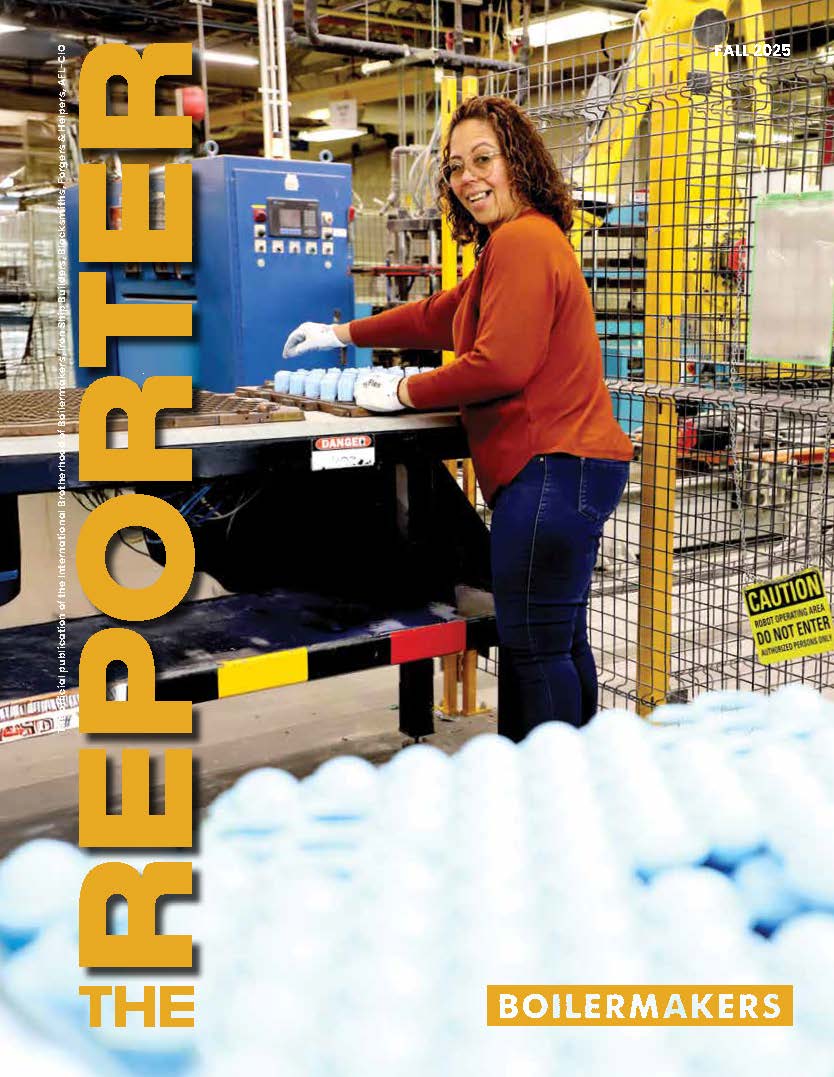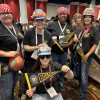We organize so that individual workers, through union representation, can bring their voices together and be heard.
Unions exist to organize. Unions work because we organize. And unions organize, because it’s the only way for workers to hold companies’ feet to the fire and ensure safety, fair treatment, living wages and decent working conditions.
We organize so that individual workers, through union representation, can bring their voices together and be heard—so that through a collectively bargained, negotiated contract, management cannot ignore our voices.
Organizing is why workers at Doppelmayr OAC, who are now Local 549 Boilermakers, have a contract that includes yearly pay increases, medical premium payments and specifications on how reprimands are handled. Workers didn’t have those guarantees before. Organizing is why union Boilermakers at any industrial facility in the United States and Canada get a fair shake through defined and regimented grievance processes.
Organizing is why, in our Construction Sector Operations, all Boilermakers, no matter if they’re a man, woman or the best friend of a supervisor, go to work knowing their wages are fair and equal and knowing exactly what to expect on the job from the legally-binding contract that was agreed upon by our union and the contractors who employ them.
We like to think we’re a long way from the grim days before unions existed; when children as young as 10 years old labored in textile mills; when worn-to-the-bones men and women worked grueling hours in sweatshops for mere pennies. We like to think horrors like the disgusting working conditions in the 1900’s Chicago stockyards or New York City’s tragic Triangle Shirtwaist fire are a faraway past. But even today, left to their own moral standards, companies unfortunately continue to prove they’ll put greed and profit above human decency, let alone simply doing the right thing.
Just a year ago at Siemens Mobility in Sacramento, California, workers endured high temperatures and poor ventilation that was so extreme, some became ill. Siemens’ welders were paid less than the hourly wage of California McDonald’s workers.
The California Labor Federation reported revenue of $3 billion for Siemens Mobility.Yet, the company didn’t care about the inhumane working conditions, and they didn’t care that their workers—the very people they depend upon for the profits they enjoy—cannot afford the company-provided health insurance and sometimes work multiple jobs just to pay rent.
How does this happen in 2025 in the United States of America? Because the workers aren’t unionized. They don’t have a voice. You can read on page 12 about our efforts to organize Siemens workers. We didn’t win the votes this time—this time—but we’ve set a solid path for success, and we will not give up on the future these hard-working men and women deserve.
Organizing is a top priority in the work we do as a union. We know there are workers, like those at Siemens, who desperately need a union. It’s our duty as part of the labor movement and as Boilermakers to help them organize.
Even as we build power for the workers we represent, we also build our union’s power by joining more and more workers to amplify our unified Boilermaker voice. And as we make our Boilermaker voice louder, we make our Boilermaker future brighter.






